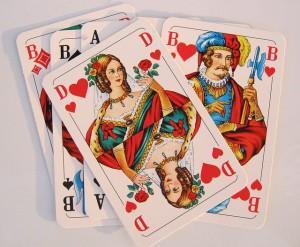
You might have learned at some point that all nouns in Russian are either animate (одушевле́нные) or inanimate (неодушевле́нные). Roughly speaking, living things are animate and/or sentient: студе́нт, ко́шка, де́ти; and non-living things are inanimate: стена́, телефо́н, письмо́. This subject has been covered on this blog before.
As it turns out, determining whether a noun is animate is not always as straightforward as it may sound. This article in Moskovskie Novosti lists some of the difficult cases, which we will discuss further in this post. The Gramota site answers some of the difficult questions, too.
Different Declensions
This is all very interesting, you may say, but why should I care? The reason is that animate and inanimate nouns diverge in their declension, specifically, in the accusative case. Plural animate nouns are identical in accusative and genitive, while plural inanimate nouns are identical in accusative and nominative. For masculine nouns, both singular and plural declensions are affected:
| Animate | Inanimate | |||
| Nom. | Это слон. | Это слоны. | Это стол. | Это столы́. |
| Acc. | Вижу слона́. | Вижу слоно́в. | Вижу стол. | Вижу столы́. |
| Gen. | У меня нет слона́. | У меня нет слоно́в. | У меня нет стола́. | У меня нет столо́в. |
The animate-inanimate distinction also applies to plural feminine and neuter nouns. Luckily, singular forms are not affected. Compare the plural declension of да́ма (a lady) and ла́мпа (a lamp).
| Animate | Inanimate | |
| Nom. | Это да́мы. | Это ла́мпы. |
| Acc. | Вижу дам. | Вижу лампы. |
| Gen. | Здесь нет дам. | У меня нет ламп. |
Here is a neuter plural example. This is a bit of a spoiler — it tells you that the word чудо́вище (monster) is declined as an animate noun, while окно́ (window), as expected, is declined as an inanimate noun.
| Animate | Inanimate | |
| Nom. | Это чудо́вища. | Это о́кна. |
| Acc. | Вижу чудо́вищ. | Вижу о́кна. |
| Gen. | Здесь нет чудо́вищ. | У меня нет о́кон. |
The Living Dead
The first surprise is that Russian is inconsistent in talking about dead people. For instance, поко́йник and мертве́ц (deadman) are animate, while труп ([dead] body) is inanimate.
‘Тя́тя! тя́тя! на́ши се́ти
Притащи́ли мертвеца́’.
(Literally, “Daddy, daddy, our nets have caught a deadman,” from the Pushkin poem “The Drowned Man“)
В подва́ле до́ма нашли́ труп. (A body was found in the building basement.)
All The Small Things
Microscopic or small organisms may be declined as either animate or inanimate. Examples include микро́б (microbe), личи́нка (maggot), бакте́рия (bacterium), заро́дыш (f/o/etus), эмбрио́н (embryo) — depending on the source you consult.
Био́лог изуча́л бакте́рии OR Био́лог изуча́л бакте́рий. (The biologist was studying bacteria).
All Fun And Games
 Many playthings are also animate. For example, ку́клы (dolls), cards, and chess pieces are all declined as animate nouns.
Many playthings are also animate. For example, ку́клы (dolls), cards, and chess pieces are all declined as animate nouns.
Музе́й коллекциони́рует стари́нных ку́кол (The museum collects antique dolls).
Uncanny Valley
Non-human or imaginary creatures that are perceived as sentient will also fall in the animate category. Examples include ро́бот (robot) and чудо́вище (monster).
“Сон ра́зума рожда́ет чудо́вищ” (Francisco Goya’s etching The Sleep of Reason Produces Monsters)
The World’s Your Oyster
When we talk about eating у́стрицы (oysters) or креве́тки (shrimp), they may be animate or inanimate depending on whether they are seen as food or animals. However, when we talk about them being hunted by other animals in the wild, we can only use the animate declension.
Мы еди́м креве́тки/креве́ток (We eat shrimp).
Э́та ры́ба ест креве́ток (This fish eats shrimp).
These are just a few of borderline cases that I find unexpected or interesting. Are there any that surprised you? What other animate/inanimate nouns do you think are important to know?